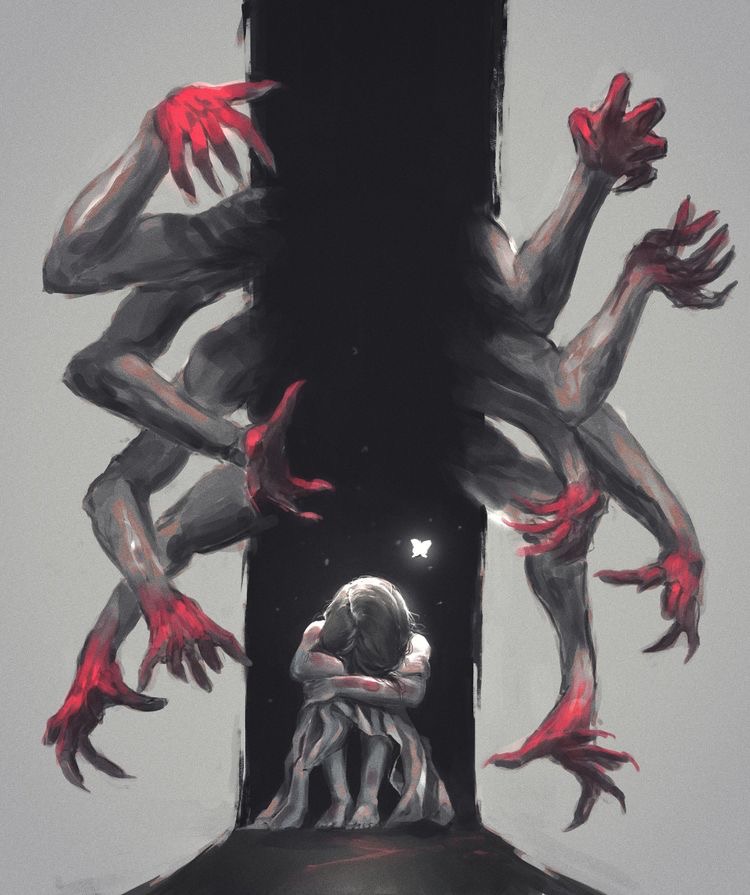
Surviving a catastrophe requires the resilience of not just the body but also the mind. Research on the effect of the coronavirus on the Covid-19 generation— children carried, conceived, or born in the world around these times foreshadows an alarming future for this new bunch. The template for the social and emotional wellbeing of these children is already being painted by alienation, parental job losses, deaths of family members, educational disruptions, domestic violence, forced home confinement, sexual violence, excessive digital exposure, and warped human interactions. All this has plunged the children of India into an almost overwhelming crisis.
What sort of India has the Covid-19 generation been born into?
A UNICEF report in March shows that when probed, India will have the highest number of Covid-19 related deaths among children, and the highest number of maternal deaths in South Asia in 2020. “The number of children left hungry, abused, isolated, living in poverty, anxious and forced to marry has tremendously increased. While their access to education, socialization, and essential services, including health, nutrition, and protection, has decreased. The indications that children will bear the scars of the pandemic for years to come are unmistakable,” says perturbed Henrietta Fore, UNICEF Executive Director.
Cave Syndrome
Covid-19 has impacted relationships and social interactions among children and adolescents the most. ‘Cave syndrome’ describes a reluctance to return to the old way of doing things after getting used to “the new normal,” but it also reflects residual concern about the disease itself, and reflects underlying social anxieties amplified by recent solitude. Leading psychiatrist Dr. Anuneet Sabharwal shares, lack of social interactivity makes them feel caged at their houses. Even babies and toddlers are vividly feeling the effects of their parents’ mental breakdowns. The risk of postpartum depression for mothers has grown significantly due to the pandemic. Anxiety, acute loneliness, and burnout feelings are transmitted to their children as well. Language or speech stammer or delay in developing appropriate social skills are becoming increasingly common.
The Learning Crisis
An ORF study found that the closure of 1.5 million schools and the lockdowns in 2020 brought mayhem to the lives of 247 million elementary and senior school students. More than 6 million boys and girls were already not attending school before the pandemic. The lack of internet access in many Indian households has further led to online education serving the needs of only one in four children.
Studies have shown that reduced physical activity has led to a diverse array of health problems such as weight gain, low muscular and cardiorespiratory fitness, educational underachievement, and psychological issues. These have a massive ripple effect that reaches well into adulthood. UN report in August 2020 predicted a large dropout rate due to prolonged school closure with 23.8 million children and youth will either leave school or not have access to one in 2021; girls who are especially poor, disabled, or rural, will be the most affected.
Sexual and Emotional Abuse
Isolation and sudden poverty have made children the most vulnerable segment of society. The Indian Journal of Pediatrics quoted a study, which found that the lockdown intensified the anguish of families of child sexual abuse survivors. CHILDLINE Indian Foundation reported a 50 percent increase in the number of calls reporting abuse. Home confinement enabled the abusers to sexually exploit their victims since quarantine measures have placed children and their abusers close. Lockdown disrupted the government and private efforts as well to prevent child marriages. Researches have shown that a year delay in girl bride protection measures could result in 13 million more child marriages during 2020-2030 globally. Covid-19’s financial shock has pushed poor households to reduce their family size and save money by marrying off their daughters, abiding with the social constructs of society.
Parenting Dilemma
Many frustrated parents of school-going children think that the divide between parent and teacher has dissolved completely. Remarks like Indian schools as ‘money-making institutions’ are often afloat. The refusal of most schools to reduce fees despite conducting classes virtually sparked off a debate among parents. Those who incurred business losses were offered rebates or easy EMI payment options, but this courtesy was not extended across the board.
Tortured Minds
The researchers note that children and adolescents, who are unable to fully comprehend the scope of the virus disaster, do not communicate their angst to adults. The pandemic has deprived them of school and playgrounds, adversely affecting their socialization and sporting activities. A large proportion developed anxiety, depression, sleep disturbance, and loss of appetite. Indian parents place a premium on excellence in exams, usually overlooking talents their children may have.
All this has unequivocally concluded that the youth is more vulnerable to the damaging effects of Covid 19. The Covid-19 generation needs help. The pandemic’s worst disasters have taught us that it is better to prepare early. Now is the time to save the future.
Written by Ridhima Sharma for MTTN
Edited by Asma Abidin for MTTN
Featured Image by Shimhaq
Artwork from Pinterest
Sources: UNICEF, ChildlineIndia, Childhelp

Leave a Reply
You must be logged in to post a comment.